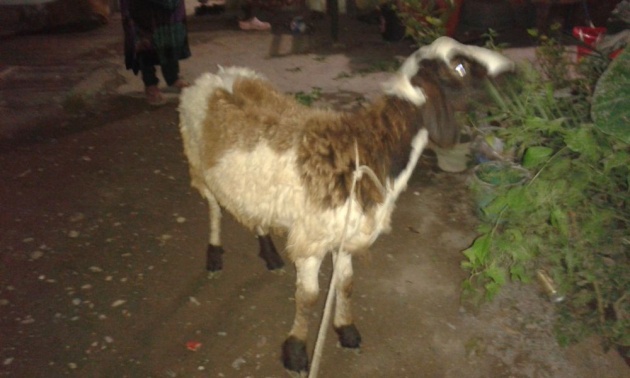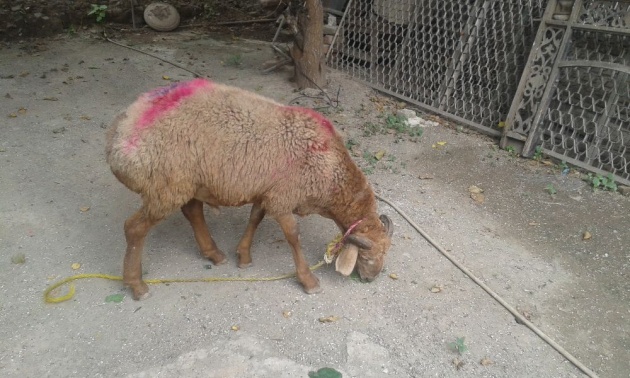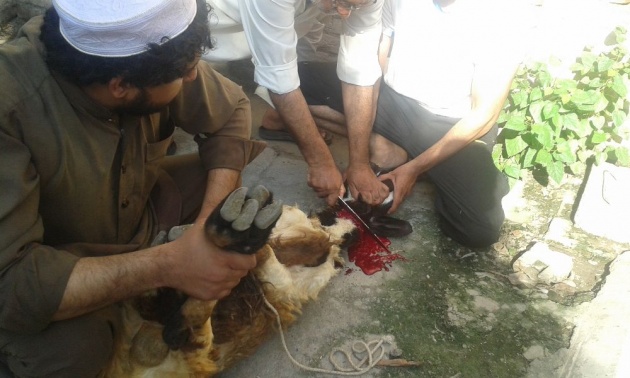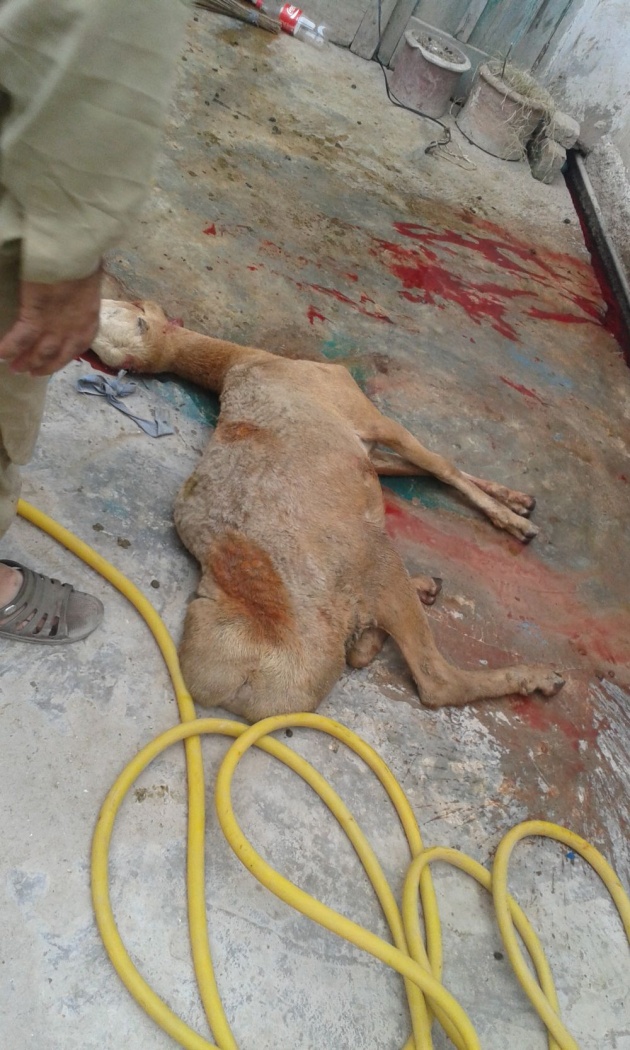



 (Arabic: عيد الأضحى ʿīd al-aḍḥā, "Festival of the Sacrifice"), also called the Sacrifice Feast or Bakr-Eid, is the second of two religious holidays celebrated by Muslims worldwide each year. It honors the willingness of Abraham (Ibrahim) to sacrifice his son, as an act of submission to God's command, before God then intervened, through his angel Jibra'il and informs him that his sacrifice has already been accepted. The meat from the sacrificed animal is preferred to be divided into three parts. The family retains one third of the share; another third is given to relatives, friends and neighbors; and the remaining third is given to the poor and needy.
(Arabic: عيد الأضحى ʿīd al-aḍḥā, "Festival of the Sacrifice"), also called the Sacrifice Feast or Bakr-Eid, is the second of two religious holidays celebrated by Muslims worldwide each year. It honors the willingness of Abraham (Ibrahim) to sacrifice his son, as an act of submission to God's command, before God then intervened, through his angel Jibra'il and informs him that his sacrifice has already been accepted. The meat from the sacrificed animal is preferred to be divided into three parts. The family retains one third of the share; another third is given to relatives, friends and neighbors; and the remaining third is given to the poor and needy.
In the lunar-based Islamic calendar, Eid al-Adha falls on the 10th day of Dhu al-Hijjah and lasts for four days.[2] In the international (Gregorian) calendar, the dates vary from year to year, drifting approximately 11 days earlier each year.
Eid al-Adha is the latter of the two Eid holidays, the former being Eid al-Fitr. The word "Eid" appears once in Al-Ma'ida, the fifth sura of the Quran, with the meaning "solemn festival".[3]
Like Eid al-Fitr, Eid al-Adha begins with a Sunnah prayer of two rakats followed by a sermon (khutbah). Eid al-Adha celebrations start after the descent of the Hujjaj, the pilgrims performing the Hajj, from Mount Arafat, a hill east ofMecca. Eid sacrifice may take place until sunset on the 13th day of Dhu al-Hijjah.[4] The days of Eid have been singled out in the Hadith as "days of remembrance". The takbir (days) of Tashriq are from the Fajr prayer of the 9th of Dhu al-Hijjah up to the Asr prayer of the 13th of Dhu al-Hijjah (5 days and 4 nights). This equals 23 prayers: 5 on the 9th–12th, which equals 20, and 3 on the 13th.[5]



